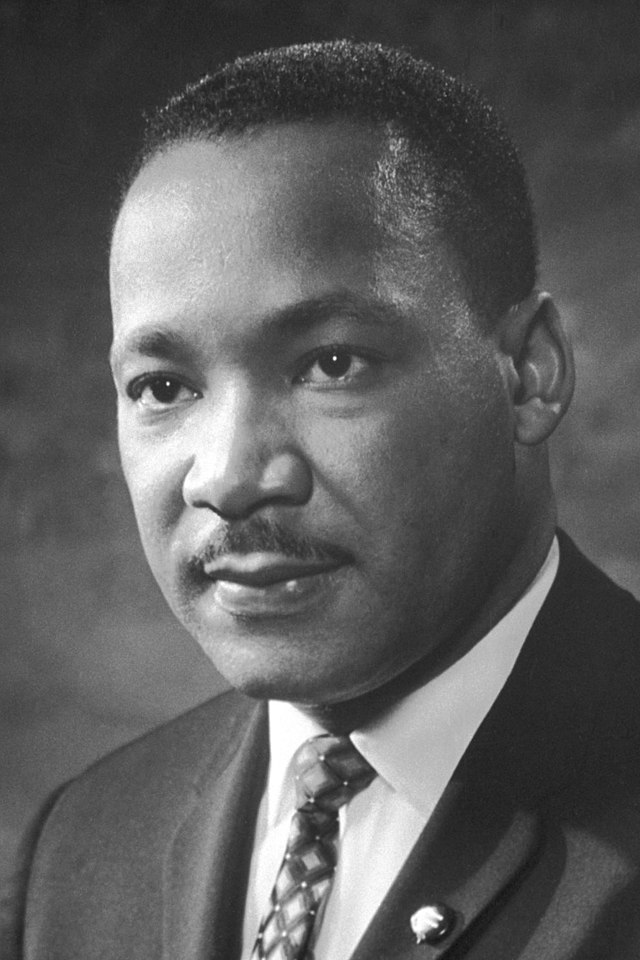Martin Luther King Jr. was assassinated at the age of 39, and in the five decades since, his children have worked tirelessly to uphold his legacy, sometimes holding radically divergent opinions on how to do so. However, they all agree on one important thing: James Earl Ray did not murder Martin Luther King. The FBI’s obsession with King in the years before his murder in Memphis on April 4, 1968—which included extensive surveillance, a malicious disinformation campaign, and open denunciations by FBI director J. Edgar Hoover—laid the foundation for the King family’s and other civil rights activists’ belief that he was the target of a plot.
James Earl Ray had to spend his entire life in prison making up for wrongdoings, said Bernice King, 55, the youngest of Martin Luther King’s four children and the executive director of the King Centre in Atlanta. Coretta Scott King openly held the FBI’s effort to discredit her husband responsible for the assassination, and she endured this campaign until her own death in 2006 as a result. A Memphis jury determined that the city, state, and federal governments were responsible for King’s death after her family filed a civil lawsuit in 1999 to demand more information be made public. The King Centre website still hosts the complete trial transcript.
Funeral of Martin Luther King Jr.
At the funeral for Martin Luther King Jr. on April 9, 1968, in Atlanta, were Coretta Scott King and her 5-year-old daughter Bernice. (Moneta J. Sleet Jr./AP) The jury found the mafia and various government agencies “were deeply involved in the assassination,” which Coretta King said after the verdict: “There is abundant evidence of a major, high-level conspiracy in the assassination of my husband. Mr Ray was set up to take the blame.” But nothing subsequently altered. The Kings only requested $100, so no enormous sums of money were granted, and Ray was not cleared. Dexter, 57, and Martin III, 60, the two other living children of King, are in complete agreement that Ray was not guilty. And other reputable black leaders share their perspectives on the matter. Rep. John Lewis (D-Ga.), a 78-year-old civil rights legend, stated: “I think there was a major conspiracy to remove Doctor King from the American scene.” “I don’t know what happened, but for the benefit of history, the truth about what happened to Dr. King should be made public.” King was shot at the Lorraine Motel, and Andrew Young, a former U.N. ambassador and current mayor of Atlanta agree. Young said, “I would not accept the fact that James Earl Ray pulled the trigger, and that’s all that matters.” He pointed out that King died after the murders of John F. Kennedy, Malcolm X, and Robert F. Kennedy, and just months before the assassination of Robert F. Kennedy. The time of assassinations, according to Young, was our time. Since JFK’s murder in 1963, the suicide of Deputy White House Counsel Vince Foster in 1993, and the murder of Democratic National Committee employee Seth Rich in 2016, conspiracies have captured the attention of Americans.
“The King children are part of a larger population of Americans who need to believe that the assassination of a King or a Kennedy must be the work of mightier forces,” according to Pulitzer Prize-winning King biographer Dave Garrow, rather than being the fault of “small-fry, lifetime losers.” People must perceive a balance between cause and effect, according to Garrow. The idea is that anything with a significant negative impact should have a significant negative origin.
‘Entitled to know the truth’
Even those who think Ray, who passed away in prison in 1998, killed King are inclined to believe that someone helped him, whether it was his two brothers, the FBI, or the mafia.
There was no trial because Ray abruptly admitted guilt in 1969, less than a year after the shooting. In 1979, the House Select Committee on Assassinations, which oversaw the largest government investigation, theorised that Ray killed his brothers in order to collect a $50,000 reward offered by supporters of George Wallace, the incumbent president, in St. Louis, where Ray’s brothers lived.
The Wallace proponents, however, had passed away by 1979 and there was no conclusive evidence to support the theory. Blakey said recently he had tried to prove a conspiracy but could not. He claimed that by 1979, any evidence of FBI or CIA involvement had been destroyed. Blakey declared, “I have no stake in our result. If you can come up with a better conclusion and provide evidence for it, I’ll back your theory. He insists that Ray was the shooter, but it’s likely that he had assistance that was known about in 1968 but wasn’t investigated. According to John Campbell, a Shelby County, Tennessee district attorney’s office investigator who spent years working on the case, Ray’s account of the events “kept changing.” According to a report from his office from 1998, Ray was in charge “I’m not denying that he received assistance”, Campbell insisted. “He lacked the mafia, CIA, Memphis police, and FBI, though.”
Review of the case
Attorney General Janet Reno tasked civil rights special counsel Barry Kowalski, who had previously prosecuted the Los Angeles police officers involved in the Rodney King beating, with reviewing the most recent conspiracy allegations after Coretta King and her family begged President Bill Clinton to reinvestigate the case in 1998. Even after considering the outcomes of the Memphis civil trial in 1999, Kowalski came to the conclusion that Ray was guilty and that there was no government conspiracy in 2000.
William Pepper, a civil rights activist and lawyer from New York who knew and worked with King, has been at the centre of all this controversy for the past 40 years. Ralph Abernathy, one of King’s closest associates, and Pepper paid Ray their first visit while he was imprisoned in 1978. Pepper, who had come to believe Ray was innocent, persisted in looking into the matter even after Ray passed away. Pepper detailed the conspiracy in three books, the most recent of which, “The Plot to Kill King,” was published in 2016. These books were largely ignored by the media. He filed and tried the Memphis civil suit that held the government accountable for King’s death, and he defended Ray in a mock trial that aired on HBO in 1993 (Ray was found not guilty).






